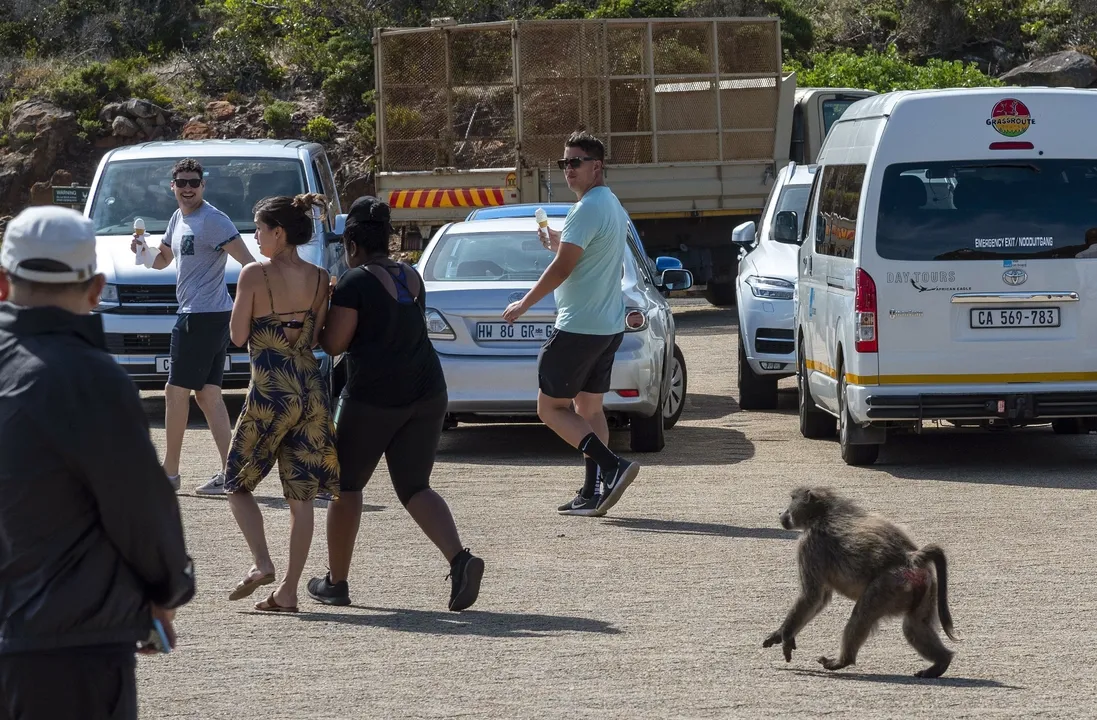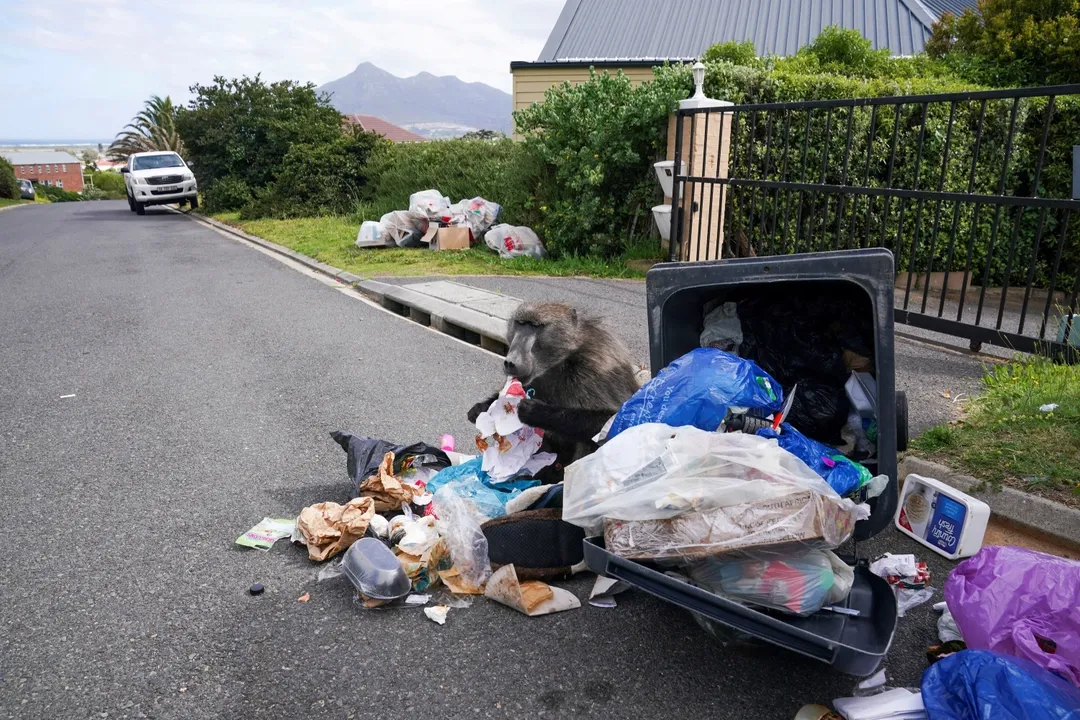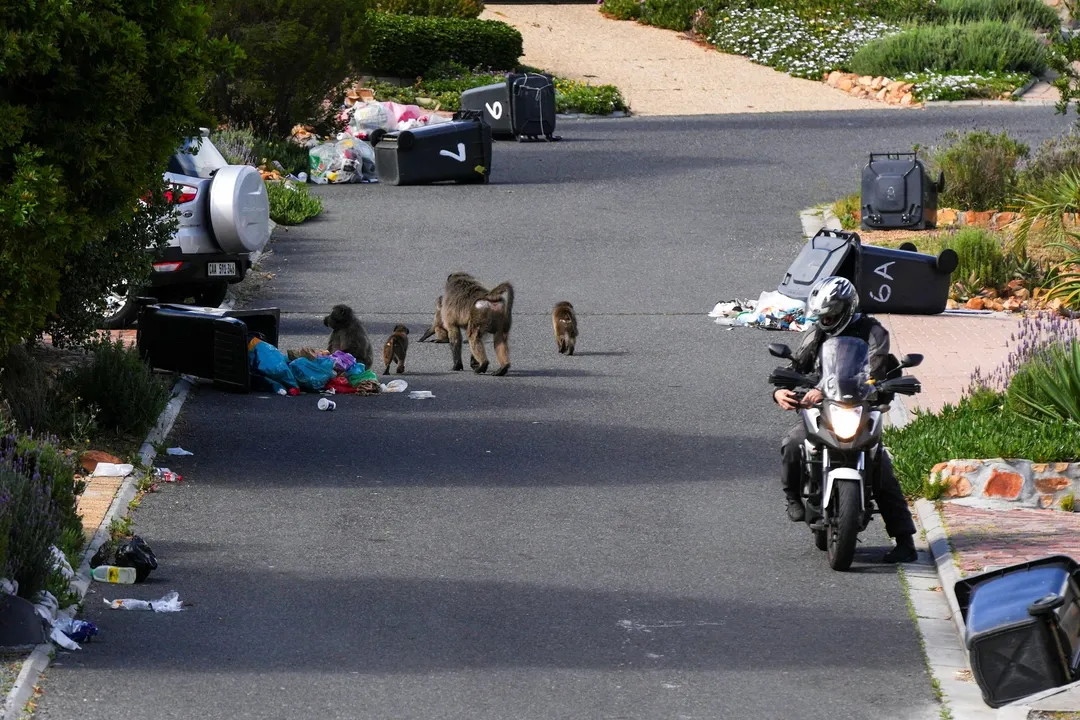Sport
Authorities are worried some of these baboons no longer show any fear of humans.
In the picturesque South African coastal village of Simon's Town, where the Atlantic Ocean meets the slopes of the Table Mountain National Park, an unusual drama is unfolding.
Here, the charming scenery is punctuated by the antics of chacma baboons, also known as Cape baboons, and not everyone is amused.
In Simon's Town, baboons, instead of swinging from tree to tree, land squarely on rooftops and pry at roofing sheets.
Social media is awash with clips that showcase the brazenness of the animals, waltzing into stores, grabbing fruits, and running off.
The frustration boiled over last Saturday, as residents took to the streets in a protest march to demand urgent government intervention.

Protesters called for the implementation of effective waste management systems and the imposition of fines on locals and tourists who feed the baboons, inadvertently encouraging them to stay in the midst of people.
Authorities are already worried some of these baboons no longer show any fear of humans, exhibiting aggressive behaviour that raises serious safety concerns for residents.
In nearby Kommetjie town, about 45 km from Cape Town, activists say more homes springing up shrinks the baboons' natural habitat, making direct conflicts between humans and baboons more likely.
Balancing act
The City of Cape Town says it is grappling with the challenge of containing an estimated 500 chacma baboons roaming the Cape Peninsula.

In 2022, the Ministry of Forestry, Fisheries, and the Environment, alongside the City of Cape Town Mayor's office, established a joint task team to develop a sustainable programme for managing the chacma baboon population on the Cape Peninsula.
Protesters are dissatisfied with the work of the task force and called on authorities to return to the core recommendations of the 2023 Baboon Strategic Management Plan, which includes waste control, fencing, and law enforcement.
The protesters also kicked against implementing lethal strategies, including forced removal and culling.
Easy Meals
The International Union for Conservation of Nature (IUCN) says as human populations expand, urbanisation and agricultural development are steadily encroaching on the chacma baboons' natural homes.

Thirty-three baboons have reportedly been killed between July 2023 and June 2024 as a result of human-baboon conflict.
In 2021, the city put down a notorious alpha-male monkey who had disturbed residents with more than 40 raids for food in rubbish bins, from lawns and porches, sometimes entering homes while people were inside.
Comments
No comments Yet
















Comment